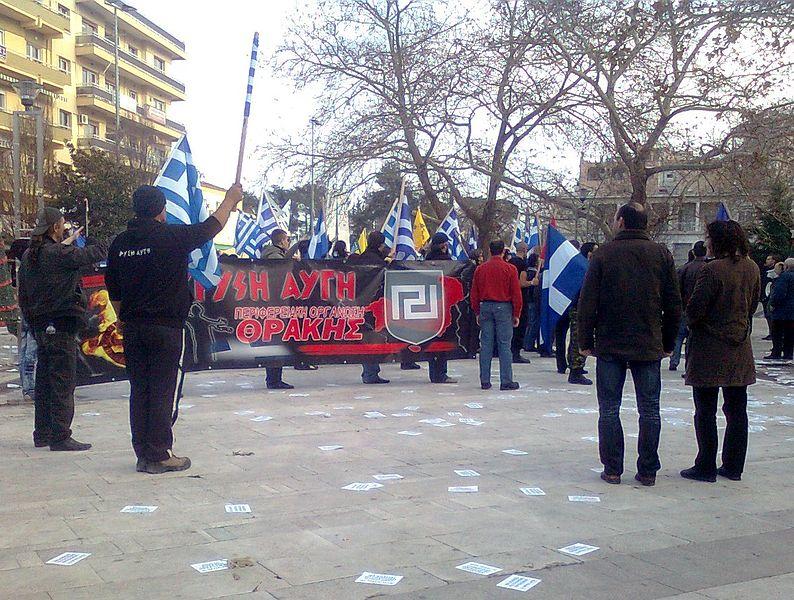On Wednesday October 2, three members of the Grecian party named “The Golden Dawn” made bail on several charges, including possession of illegal weapons and murder. However, the party’s leader, Nikos Michaloliakos, was not granted bail as he will be put on trial for the murder of the famous rapper, Pavlos Fyssas.
“I think when something new comes up like this, like anything people are slow to react,” government teacher Mr. Larry Adams said. “They pretend like they can’t believe something like that would happen. Also, People might think the killing of the rapper is a one-time incident until something else happens and another thing happens. It takes people time to react and adjust to something out of the social normal.”
The Golden Dawn party has been referred to as a Neo-Nazi party because they are similar in their extremist methods to those of the Nazis during the 1930’s-1940’s.
“I think it is a possibility that Greece could get as bad as Germany,” junior Abbey Troger said. “However, I don’t think it is that likely. I think the United Sates would take care of the situation before it got out of hand.”
Although, The Golden Dawn Party has refused the title as a Neo-Nazi, the media continues to use the name to describe the party’s methods.
“I think the golden dawn party would reject the term neo-nazithat simply because of the negative attention it would attract” senior Sam Cubba said. “Even with their slogan being “Blood! Honor! Gloden Dawn!” it could still be argued that it is just a motivational slogan.”
Even though the party has done things that are questionable, they have helped some poor Grecian citizens, who feel like The Golden Dawn Party might help them to a better standard of living than the current Grecian government.
“Good can outweigh bad sometimes,” senior Andrew Bruso said. “However, not in this case, especially since even the good things they’re doing are showing their views of Greek supremacy. I think the Greek citizens overlook the fact that the party has flaws because they are helping them.”
The balance of the future of Grecian politics could hang in the balance of whether or not Michaloliakos is convicted of murder.
“If they find the party’s leader guilty it will show that the system works and it would definitely hinder the party’s efforts to gain power in Greece,” Mr. Adams said. “Then again, if he is set free it could increase the popularity and go in the complete opposite direction of what would happen if he was to be convicted.”







